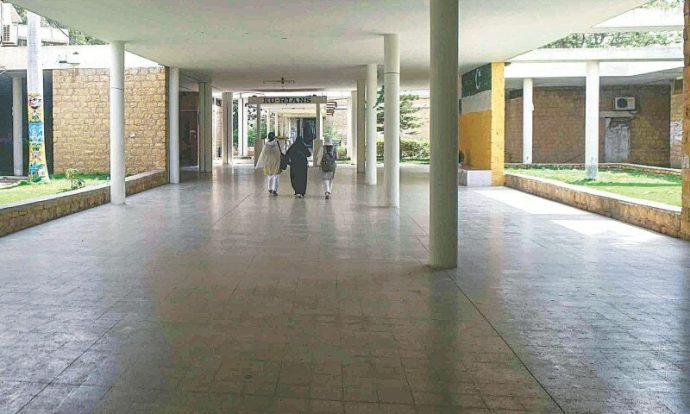
The problems in the colleges of Karachi
The public education colleges in Karachi have been providing increasingly lower-quality education. The decline is mostly caused by outmoded admissions rules, outdated syllabuses, and a lack of trained professors, particularly in education-related topics like the Bachelor of Education (BEd) degree. Since these colleges are in charge of preparing future teachers for primary and secondary education, this scenario is concerning. The issue is exacerbated by the rising dropout rate.
Sindh’s education department was divided into two distinct departments a few years ago, but the separation hasn’t gone smoothly at all. The department of college education, which currently oversees colleges, has mostly avoided tackling the academic issues afflicting these establishments in favour of handling administrative duties including postings, transfers, and budgeting.
Professor Zakaullah attested to these difficulties. “During my time as principal, I identified numerous academic issues,” he says. “The lack of teachers teaching essential subjects is one of the most urgent. Only three of the instructors at my own college were certified to teach education-related courses; the other instructors taught other subjects.”
He went on to point out another important concern. “We are training students to become teachers, but the trainers themselves often lack practical teaching experience,” Zakullah explains. “Many of them have never taught in schools and may not be fully aware of effective teaching methodologies.”
An astounding 50% of BEd students are thought to drop out, making it a highly concerning percentage for students. This is especially troubling because there are a lot of female students participating in the program. This dropout rate is influenced by a number of variables, such as personal obligations, financial hardships, and academic obstacles.
Via these colleges, there are two distinct paths to teaching. For kids who have recently completed high school, there is a four-year program available called Intermediate. For individuals who possess a two-year degree such as a BCom, BA, or BSc, there is an additional two-and-a-half-year program available. People from various backgrounds can all receive the training required to become educators in this way.
“After the admissions for Karachi University and other universities are complete, students who miss out often turn to Jamia Millia,” says Professor Zakaullah. “A large number of them attend these universities out of need, hoping to improve their resumes with a degree. But a sizable portion of them eventually leave school, which suggests that they don’t really want to continue their education.”
He went on to say that the curriculum is out of date because the syllabus hasn’t been revised since 2012. Many topics should be updated with more recent ones because many of the old ones are no longer relevant. It’s unclear whether the new secretary of college education is aware of these issues, even though a report on the subject was turned in to the now-transferred Sadaf Sheikh, the former secretary of education.
Zahid Rajpar, the acting director of colleges in Sindh, is optimistic in spite of these obstacles. The number of teachers is being rationalised, and education institutes are being elevated to academy status. These actions could enhance the calibre of teacher preparation programs and better equip graduates to teach in classrooms. Further complicating matters is the nomenclature confusion surrounding BEd programs, which refer to the two-and-a-half-year degree as “Secondary” and the four-year program as “Elementary”.
The principal of Government Education College in Karachi’s Federal B Area, Professor Naveed Rab, says, “There are some challenges in academics and core subjects, but the situation in our college is not too dire.” “There is a glaring teacher shortage, and it would be more beneficial if educators teaching BEd programs had a degree as well.
Prof. Rab, who was just named director general of colleges in Sindh, continues, “The switch to the semester system has led to increased discouragement among students who fail papers and are forced to repeat the year.” “This has led to an increased dropout rate in the two-and-a-half-year and four-year BEd programs.”

Content writer, educationist, teacher, researcher, social media manager, and a SEO manager from lahore. She has been working as a freelance academic and non-academic writer for more than 20 years now. She has a passion to learn new things and has a knack for writing and she combines both things to produce write ups she pours her heart out in.

